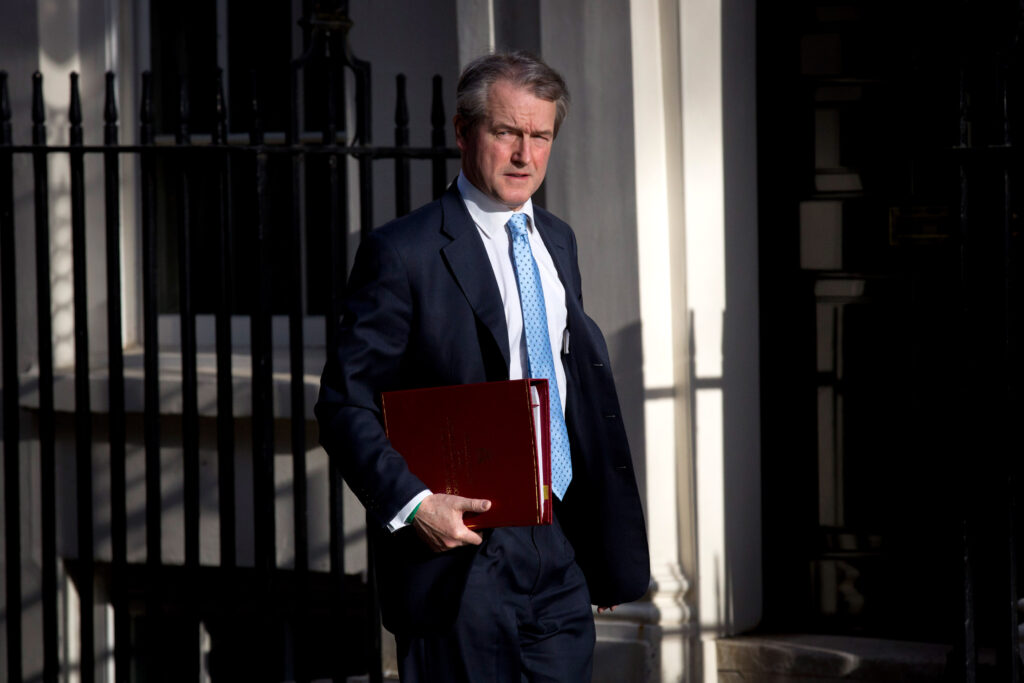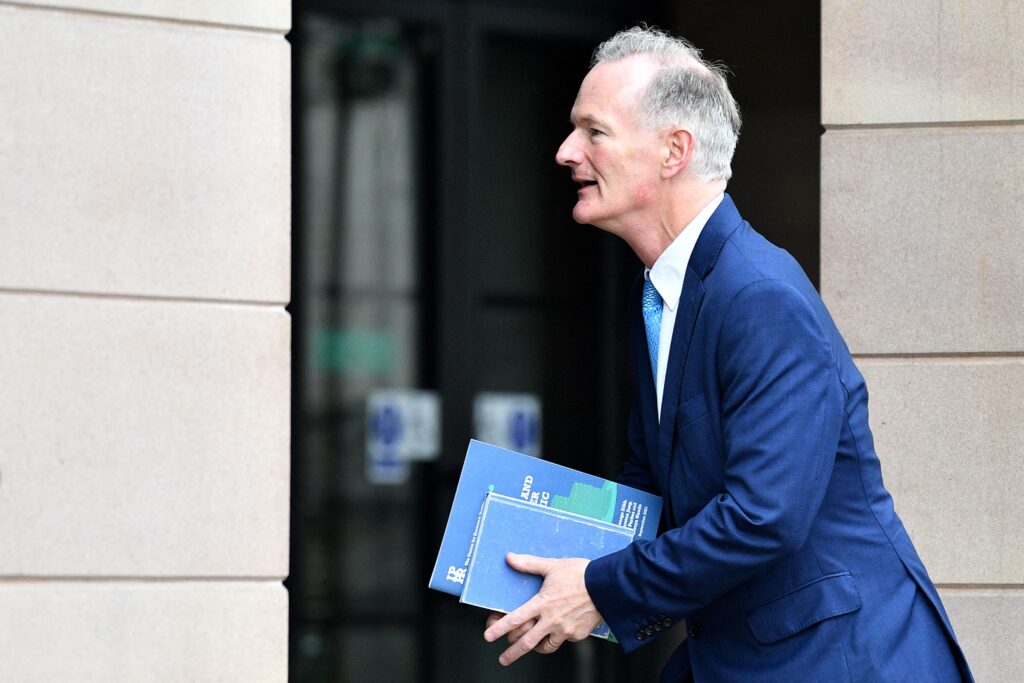LONDON — The U.K. is finally promising to tighten its loose lobbying rules after a host of scandals. The trouble is, hardly anyone’s buying the plan.
Ministers chose the last day before the House of Commons kicked off its summer recess to respond to a swathe of recommendations made in three major reports over the past two years. They vowed “fundamental” changes to the U.K.’s transparency rules to ensure the “integrity” of government.
But ethics advocates remain to be convinced, and say several loopholes remain open to abuse.
The government’s response, said Sue Hawley, director of Spotlight on Corruption, “represents a minor refresh rather than a major upgrade of the current way in which ethics in government is regulated.”
Long list
The U.K. hasn’t exactly been short of rows over lobbying in recent years.
Conservative member of parliament Owen Paterson was forced to resign from parliament in 2021 after breaching rules meant to stop MPs providing paid advocacy to outside firms.
That came hard on the heels of the Greensill scandal, which saw a finance firm linked to former Prime Minister David Cameron given unprecedented access to the top of government.
And there were further questions earlier this year after a Conservative MP was caught apparently offering advice and inside information to undercover journalists posing as representatives of the gambling industry.
Each prompted promises that lessons would be learned — and shed an unfavorable light on the systems meant to police influence-peddling in the U.K.
Lobbying in the U.K. is currently regulated by a patchwork of different bodies — with a heavy emphasis on self-regulation.
There is the Office for the Registrar of Consultant Lobbyists (ORCL), which asks a small sub-section of Britain’s lobbying shops to reveal the clients on their books and log approaches made to government.
Revolving door watchdog the Advisory Committee on Business Appointments (ACOBA) is meant to provide a check on ministers and senior officials taking up post-government jobs and then trying to influence their old departments.

And government departments themselves are expected to publish the outside organizations with whom ministers have been meeting every quarter.
The government plan would see some of those rules tightened.
There’s a pledge to make decisions from ACOBA about post-government jobs legally-binding, in a shift away from a system that, right now, is only advisory and relies on angry letters to publicly shame ex-ministers and officials.
The government is also saying it’ll move to a monthly — rather than quarterly — transparency publication schedule for the data on meetings.
‘Fireside chats’
Yet some of those tasked with keeping an eye on Whitehall say the government has ducked the chance for more substantive reform.
Tim Durrant, a program director at the Institute for Government, said the promise to publish ministerial meetings data more frequently is simply a rehash of an earlier commitment.
“At the end of last year … [ministers said] they hoped by the summer to move to monthly reporting, and all we’ve got by summer is a commitment that at some point in the future they’ll move to monthly reporting,” he pointed out. “I think this reveals this is not a political priority and they are not putting in the resources to make those changes.”
Those concerns have been further compounded by the government’s admission that the change to its transparency disclosures will only come into effect after the “development, deployment and adoption” of a new system for collating and publishing the data — a process which could take years.
Campaigners have also criticized a resistance to expand the type of contact with top political figures actually captured by the transparency data. Rose Whiffen, senior research officer at Transparency International UK, said there remains “far too much wiggle room” for secret lobbying liaisons to continue.
Right now, ministers only need to disclose in-person meetings with lobbyists. The plan promises to include diarized phone calls and virtual meetings in the data — but that’s a far cry from an official review’s recommendation to list WhatsApp messages, private emails and informal discussions too.
“Would a quiet chat with a party donor about government policy or a planning decision make it into the transparency data?” Whiffen asked. “It should do — but there’s too much ambiguity in the proposals and the ministerial code, which would enable ministers to withhold these fireside chats from public view without consequences.”
Even the independent regulators themselves appear frustrated by the lack of ambition.
Harry Rich, who leads the Registrar of Consultant Lobbyists, told the Financial Times the government’s decision to exclude contact with special advisers — powerful officials seen as the gatekeepers to ministers in the British system — from the plan marked a “missed opportunity.”
“I’ve done a bit of lobbying in my time … You always start by talking to the special adviser,” Rich said. “If one wants transparency in policymaking you need to be able to know which special advisers have been influenced by which clients.”
Public priorities
Transparency campaigners argue that there’s one major miss in the government’s new plan — its refusal to give Westminster’s various ethics regulators independence from the center of power. Britain’s independent adviser on ministers’ interests, the watchdog meant to make sure ministers are following the rules in office, will still only be able to launch investigations at the behest of the prime minister, for example.
Describing this as the “biggest disappointment” of the government’s response, Sue Hawley, director of the Spotlight on Corruption campaign group, said government risks miscalculating where voters are at.
“From failing to give the independent adviser [on ethics] the ability to initiate investigations without the PM’s say-so or to recommend sanctions, to rejecting recommendations to beef up the appointment process for ethics regulators, the government has misread the mood of the country on this,” she said.
The government faces a daunting list of policy headaches as a general election looms next year. And tweaking transparency rules is unlikely to be at the top of its list. Yet polls continue to show deep public mistrust in the British political system.

Conservative MP John Penrose — who formerly served as the prime minister’s anti-corruption champion — told POLITICO that while he felt the changes outlined were “good, solid reforms,” the “real test” will be in their actual enforcement “without fear or favor of rich and powerful people.”
He added: “That’s the way for Rishi Sunak to prove his improved system is tough and fair, so there isn’t one law for government and another for everybody else.”
Even figures in the U.K.’s lobbying industry itself argue that reform offers the chance for ministers to avoid the next big scandal.
“Fourteen years have passed since the MPs expenses scandal erupted,” said Alastair McCapra, chief executive of the Chartered Institute of Public Relations. “Since then delay, half-measures and a reluctance to upset the apple cart have debased political life further than ever before. With a general election only months away now, politicians of all parties must surely want to face voters with a plan for radical improvement.”
The CIPR is pushing for a more comprehensive register of lobbyists operating in the U.K. to be established too, covering influencers working in-house for big corporates, charities, and trade bodies.
“These are perfectly sensible measures, long overdue, but they are not a game changer,” McCapra said of the government’s latest plans. “They are what is left after the government has taken two years to think about recommendations for improving standards in public life, and rejected most of them.”

